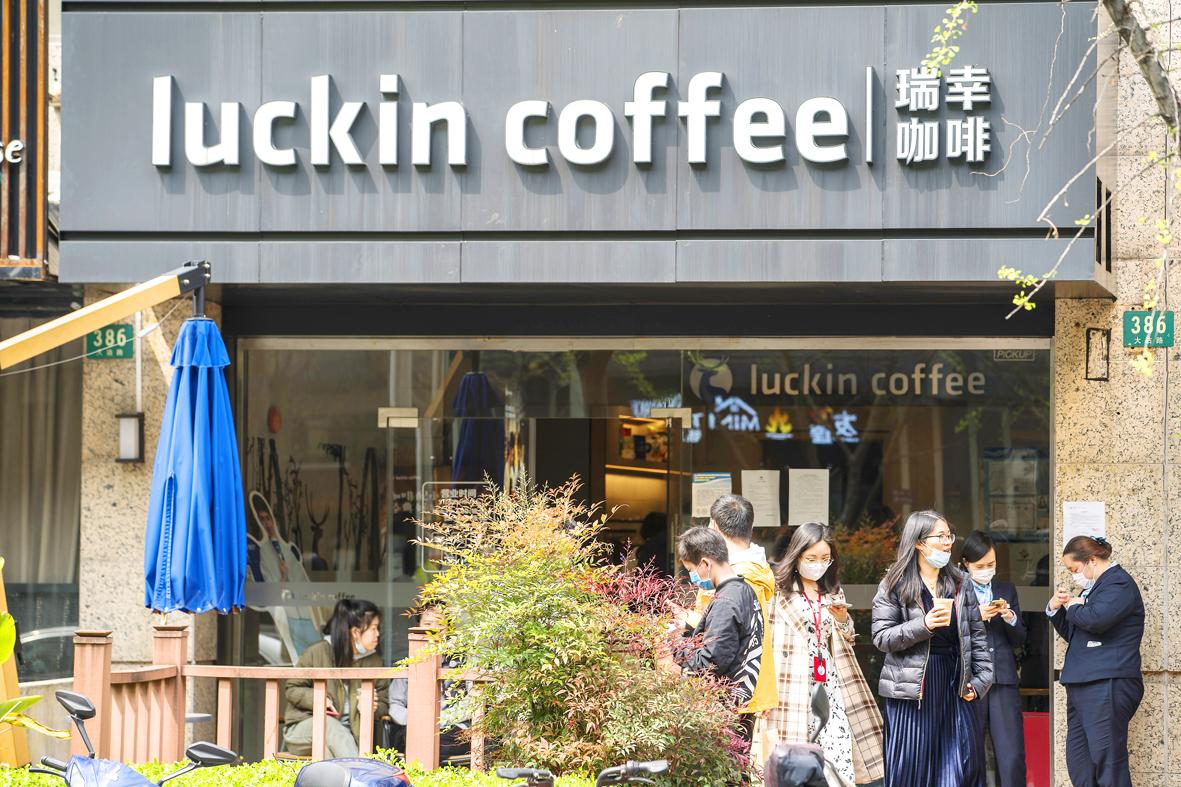China’s second accounting scandal in less than a week is underscoring concern over lax corporate governance at some of the country’s fastest-growing companies.
TAL Education Group (好未來教育集團), a tutoring business for kindergarten to year 12 students whose success turned founder Zhang Bangxin (張邦鑫) into one of China’s richest people, delivered the latest bombshell on Tuesday, after saying a routine internal audit found an employee had inflated sales by forging contracts.
The Beijing-based company said the wrongdoing affected its “Light Class” business that generates as much as 4 percent of revenue and the worker is now in police custody, but it did not give further details on the value of the affected sales or how long they had taken place.

Photo: Bloomberg
TAL’s American depositary receipts (ADRs) sank as much as 18 percent in late US trading.
The sell-off follows the 83 percent slump in NASDAQ-listed Luckin Coffee Inc (瑞幸咖啡) since the company announced on Thursday last week that its chief operating officer and some underlings might have fabricated billions of yuan in sales for last year.
Accounting firm Ernst & Young later said it discovered the fabrications when it audited the firm’s financial statements.
Trading in its ADRs was suspended on Tuesday.
While China Inc is no stranger to claims of financial irregularities — particularly from short sellers who have targeted both TAL and Luckin in the recent past — the fresh wave of revelations is once again putting the spotlight on corporate malpractice at US-listed Chinese firms.
The fallout has already affected other listings from the nation and is likely to deter some overseas investors from buying into future initial public offerings.
The cases are “reviving the big question for investors in Chinese firms: The financial data may look pretty, but can you trust it?” Prudential Brokerage Ltd (信誠證券) associate director Alvin Cheung (張智威) said. “The latest case has further fueled anxiety over Chinese firms’ financials, especially under a slowing economy and a difficult business environment.”
Moves in other education stocks show how investor nerves can quickly spread: New Oriental Education & Technology Group Inc (新東方教育科技集團) lost 4.6 percent in US post-market trading.
Hope Education Group Co (希望教育集團) yesterday fell 3.3 percent in Hong Kong, while CAR Inc (神州租車), a vehicle-rental firm founded by Luckin’s chairman, dropped another 17 percent.
The declines vindicate short sellers such as Carson Block’s Muddy Waters, which has for years targeted Chinese firms listed on US exchanges.
Peer Wolfpack Research on Tuesday released a new critical report on iQiyi Inc (愛奇藝), alleging that the video-streaming company overstates revenue and subscriber numbers.
Muddy Waters assisted Wolfpack in its research and said it is also short of the company.
Iqiyi denied the claims. ADRs in the company fell 3 percent in extended trading.

Taiwan Semiconductor Manufacturing Co (TSMC, 台積電) secured a record 70.2 percent share of the global foundry business in the second quarter, up from 67.6 percent the previous quarter, and continued widening its lead over second-placed Samsung Electronics Co, TrendForce Corp (集邦科技) said on Monday. TSMC posted US$30.24 billion in sales in the April-to-June period, up 18.5 percent from the previous quarter, driven by major smartphone customers entering their ramp-up cycle and robust demand for artificial intelligence chips, laptops and PCs, which boosted wafer shipments and average selling prices, TrendForce said in a report. Samsung’s sales also grew in the second quarter, up

On Tuesday, US President Donald Trump weighed in on a pressing national issue: The rebranding of a restaurant chain. Last week, Cracker Barrel, a Tennessee company whose nationwide locations lean heavily on a cozy, old-timey aesthetic — “rocking chairs on the porch, a warm fire in the hearth, peg games on the table” — announced it was updating its logo. Uncle Herschel, the man who once appeared next to the letters with a barrel, was gone. It sparked ire on the right, with Donald Trump Jr leading a charge against the rebranding: “WTF is wrong with Cracker Barrel?!” Later, Trump Sr weighed

HEADWINDS: Upfront investment is unavoidable in the merger, but cost savings would materialize over time, TS Financial Holding Co president Welch Lin said TS Financial Holding Co (台新新光金控) said it would take about two years before the benefits of its merger with Shin Kong Financial Holding Co (新光金控) become evident, as the group prioritizes the consolidation of its major subsidiaries. “The group’s priority is to complete the consolidation of different subsidiaries,” Welch Lin (林維俊), president of the nation’s fourth-largest financial conglomerate by assets, told reporters during its first earnings briefing since the merger took effect on July 24. The asset management units are scheduled to merge in November, followed by life insurance in January next year and securities operations in April, Lin said. Banking integration,

LOOPHOLES: The move is to end a break that was aiding foreign producers without any similar benefit for US manufacturers, the US Department of Commerce said US President Donald Trump’s administration would make it harder for Samsung Electronics Co and SK Hynix Inc to ship critical equipment to their chipmaking operations in China, dealing a potential blow to the companies’ production in the world’s largest semiconductor market. The US Department of Commerce in a notice published on Friday said that it was revoking waivers for Samsung and SK Hynix to use US technologies in their Chinese operations. The companies had been operating in China under regulations that allow them to import chipmaking equipment without applying for a new license each time. The move would revise what is known